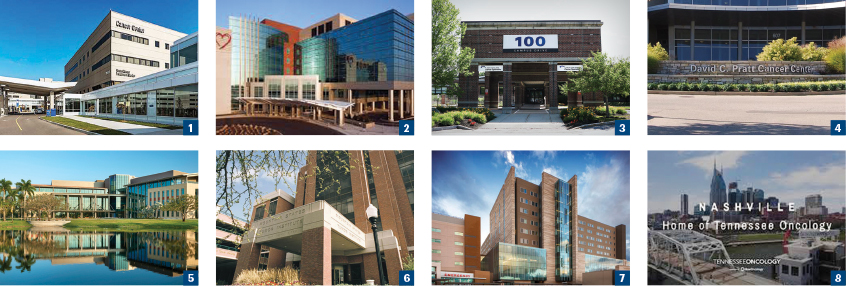The Association of Community Cancer Centers (ACCC) announced the winning programs for its 10th annual ACCC Innovator Awards, highlighting the year’s leading-edge strategies to challenges faced by oncology programs and practices across the country. The eight ACCC Innovator Award winners feature programs across the multidisciplinary team and the cancer-care continuum, featuring areas such as cardio-oncology, predictive financial analytics and modeling, oncology pharmacy, and onboarding new staff. Representatives of all award recipients will deliver presentations detailing their solutions and strategies at the ACCC’s 37th National Oncology Conference, to be held virtually September 14–18, 2020.
Award Winners
Here are the ACCC 2020 Innovator Award–winning programs:
“Integration of Prehab, Rehab, and Prospective Surveillance Into Interdisciplinary Teams,” Beaumont Health System, Beaumont Cancer Institute, Royal Oak, Michigan. This program improves the patient experience; reduces hospital length of stay; and facilitates early identification of physical impairments, functional limitations, and/or treatment restrictions.
“A Nurse Navigator–Led Community-Based Cardio-oncology Clinic,” Franciscan Health Cancer Center, Indianapolis. This program manages the cardiotoxic side effects of more than 1,000 patients with cancer. Working in collaboration with medical oncologists and other members of the multidisciplinary team, the cardio-oncology team helps keep oncology patients in treatment and improves their quality of life.
“Leveraging a 3-D Lung Nodule Educational Tool to Reduce Patient Distress,” Maine Medical Center Cancer Institute, Scarborough, Maine. The use of a three-dimensional (3D) lung nodule tool as part of shared decision-making facilitates high-quality communication, improves patient knowledge about malignancy risk, reduces emotional distress, and improves quality of life.
“Reducing Emergency Department Visits and Hospital Admissions After Chemotherapy With Predictive Modeling of Risk Factors,” Mercy Cancer Care, St. Louis. After conducting a retrospective review to identify clinical variables associated with increased risk of hospital admissions and emergency department visits, Mercy Cancer Care developed and implemented a predictive algorithm that stratifies patients according to their 30-day risks. A daily dashboard report identifies all patients as being at high, intermediate, or low risk.
“Onboarding Experienced Non-oncology Nurses to Address Staffing Shortages: Development of a Transitional Oncology Training Academy,” Miami Cancer Institute. This 12-week academy gives nurses the knowledge and skills to transition to radiology, blood and marrow transplantation, outpatient infusion oncology, and phase I/II research on a precision medicine unit.
“Improve Oral Oncolytic Workflow and Reduce Treatment Delays With a Pharmacist Collaborative Practice Agreement,” St. Luke’s Cancer Institute, Boise, Idaho. This pharmacy resident pilot project supported the creation and implementation of an oral oncolytic collaborative practice agreement. It expanded pharmacists’ scope of practice, decreased turnaround time for processing prescriptions, improved provider satisfaction, and decreased patient prescription costs.
“Shifting Chemotherapy Administration From Inpatient to Outpatient Setting Improves Care and Reduces Costs,” University of Arizona Cancer Center, Banner University Medical Center, Tucson. A multidisciplinary team identified chemotherapy regimens administered in the inpatient setting that could be safely administered in the outpatient setting. The team implemented a transition plan that reduced inpatient medical resources and chemotherapy costs, decreased inpatient bed stay, lowered infection rates, improved quality of life, and decreased overall cost of care—conservatively estimated at almost $6 million.
“Utilizing Technology to Identify Patient Comorbidities and Reduce Hospital and Emergency Department Admissions,” Tennessee Oncology, Nashville. An analysis of Oncology Care Model data identified three comorbid illnesses that led to significantly higher rates of unplanned emergency department visits and hospitalizations: chronic obstructive pulmonary disease, congestive heart failure, and diabetes mellitus. Tennessee Oncology used these data to develop targeted management algorithms that proactively address these conditions.


